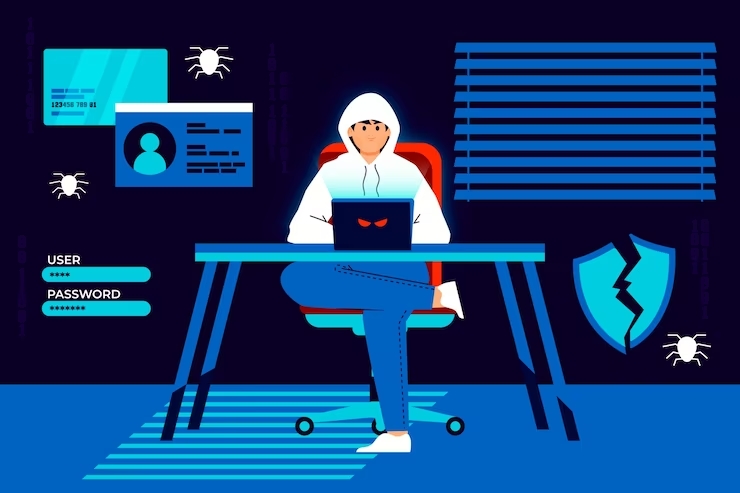


Web developers are the architects behind the creation and maintenance of websites and web applications in web development, responsible for crafting the user interface, ensuring functionality, and optimizing performance. Their skills are crucial in delivering seamless online experiences. In ethical hacking, web developers with a deep understanding of web technologies are highly valuable because they can identify and address vulnerabilities in web systems. Their knowledge enables them to simulate potential cyberattacks, conduct penetration testing, and fortify digital defenses. This dual expertise underscores the significance of web developers in not only building robust web platforms but also safeguarding them against malicious threats, contributing to a more secure online environment. When selecting a web development company it's essential to consider their expertise in security to ensure the safety of your digital assets.
A web developer can certainly become a hacker, but it's essential to clarify the ethical and legal aspects of hacking.
Some web developers choose to specialize in ethical hacking, also known as white-hat hacking. These individuals use their skills to help organizations identify and fix security vulnerabilities in their systems and websites. Ethical hackers work with the explicit permission of the owner and follow strict codes of ethics and legality. They help improve security rather than exploit it for personal gain.
On the other hand, some individuals with web development skills may engage in unethical hacking, commonly referred to as black-hat hacking. These hackers exploit vulnerabilities for illegal purposes, such as stealing data, defacing websites, or conducting cybercrimes. This is illegal and can lead to severe legal consequences.
There's also a category known as gray-hat hacking, where individuals may discover vulnerabilities without authorization but report them to the owner afterward. While their intentions may not be malicious, their actions can still be legally questionable.
It's crucial to understand that hacking, by definition, is the process of exploiting weaknesses in computer systems or networks, and it can be used for both good and bad purposes. Becoming a web developer does not automatically make someone a hacker, but a web developer can choose to pursue ethical hacking as a career path if they want to use their skills for cybersecurity and protection rather than malicious activities.
Web developers who also engage in ethical hacking, often referred to as "white-hat hackers," employ a range of tools and techniques to assess and enhance the security of web applications and websites. They leverage vulnerability scanners to identify known weaknesses and penetration testing tools like Metasploit and Burp Suite to simulate real-world attacks. Code review is another critical practice, where they scrutinize source code for security flaws. Ethical hackers also utilize web proxies like Burp Suite and OWASP ZAP to intercept and analyze HTTP traffic, aiding in the detection of vulnerabilities like XSS and CSRF. Additionally, they rely on their profound knowledge of web development languages, frameworks, and libraries, such as HTML, JavaScript, and PHP, to both exploit and defend against web vulnerabilities. Staying informed about the latest security threats and vulnerabilities through resources like OWASP is paramount in this dual role, ensuring the protection of web applications and systems.
If you're interested in ethical hacking, consider pursuing certifications like Certified Ethical Hacker (CEH) or Certified Information Systems Security Professional (CISSP) and work within the legal and ethical boundaries to help organizations strengthen their security. Always remember that engaging in malicious hacking activities can have serious legal and ethical consequences. Collaborating with a reputable web development security tools provider can enhance your capabilities as an ethical hacker and ensure you have the right tools at your disposal to assess and fortify web applications and websites.
In web development, the term "hack" typically refers to a workaround or unconventional solution used to address a problem or achieve a specific outcome when traditional or standard methods may not work as intended. These hacks are often employed to bypass limitations or overcome compatibility issues in web browsers, frameworks, or programming languages. While hacks can provide short-term solutions, they are generally discouraged because they can lead to code complexity, maintenance difficulties, and potential security vulnerabilities. It's considered best practice to seek and implement more elegant and sustainable solutions in web development to ensure long-term maintainability and security.
Yes, Google does hire individuals with hacking skills, but it's important to clarify that they hire ethical hackers and security experts rather than individuals involved in malicious or illegal activities. Google, like many other tech companies, places a high value on cybersecurity and the protection of their systems, products, and user data. They employ ethical hackers, often referred to as "white-hat hackers" or security researchers, to help identify and remediate vulnerabilities in their software and infrastructure. These professionals conduct penetration testing, security audits, and vulnerability assessments to ensure that Google's services and products are robust and secure. Google does hire individuals with hacking skills is exclusively for the purpose of enhancing security and maintaining the integrity of their technology ecosystem.
